On May 18, 2019, 14 East hosted our final event of the year (whew), Water Health and Safety: A Community Conversation. It was the culmination of our 10-month-long investigation into water in Chicago — although we still have a few things on our to-do lists before it’s finished.
We shared some of the reporting we have done, and asked for our guests — comprised mostly of DePaul students, faculty and 14 East staff — to talk about and reflect upon what they heard. We discussed the history of lead in Chicago — from the 1850s when Chicago built its citywide plumbing with lead pipes to the two-year study the Chicago Tribune published about lead levels in water. We also shared our water testing process, including how many people joined the project (92) and how many people completed it (12).
From our conversation, we gained insight about what matters most to DePaul students, and what stands out to them about the issue. Five themes stood out to us.
“The city doesn’t take responsibility.”
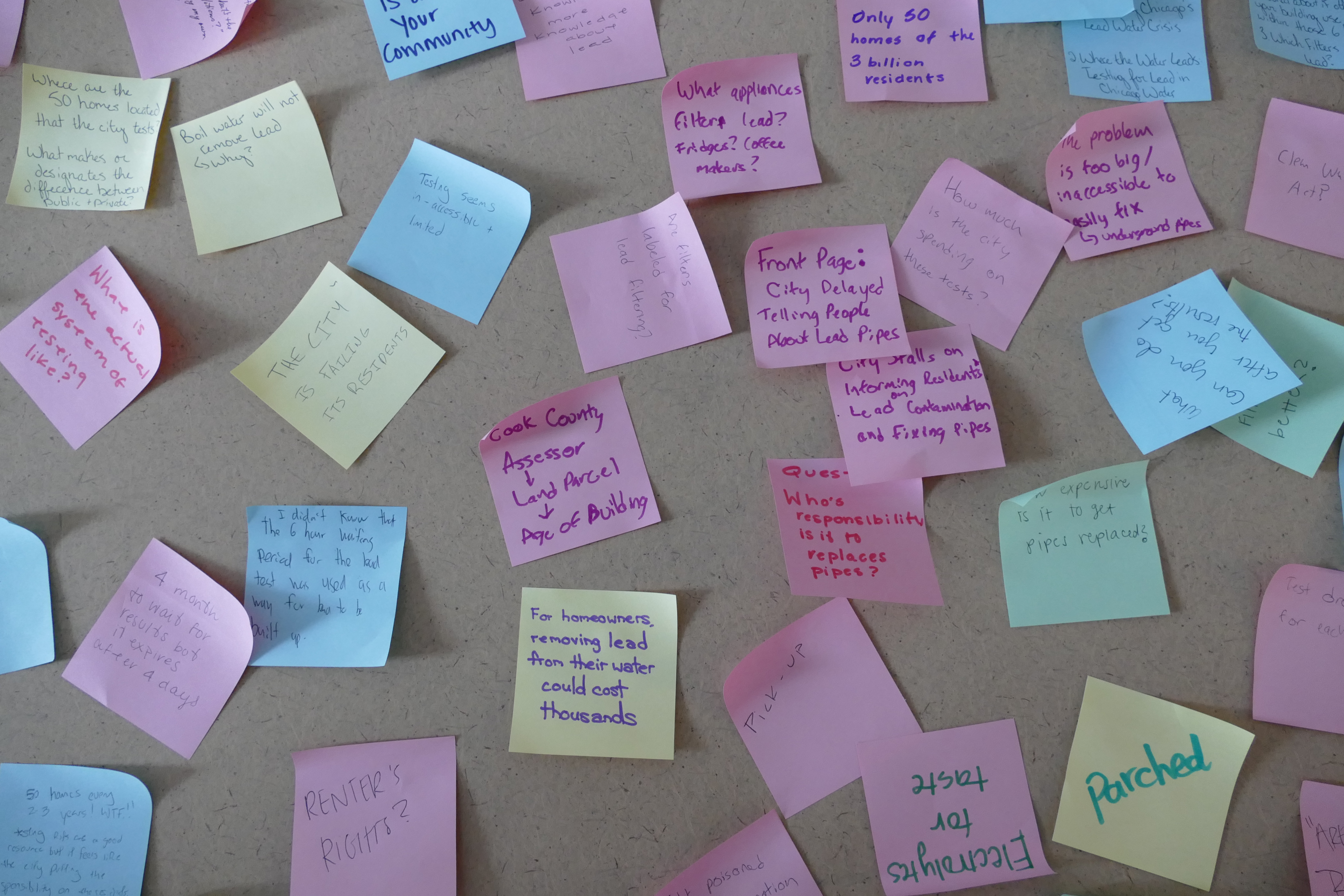
Photo: Marissa Nelson, 14 East.
From our conversation, we learned that responsibility is really important to our community. They don’t care so much who is responsible, but that people involved take responsibility — and they don’t feel the City of Chicago is doing that. Our guests wish the city would recognize the issue of lead more publicly and do more to get residents to test their water. They also felt that the steps the city is taking to address the problem aren’t sufficient, like testing the water in 50 homes every few years in a city with over 3 million residents.
“Testing seems inaccessible and limited.”
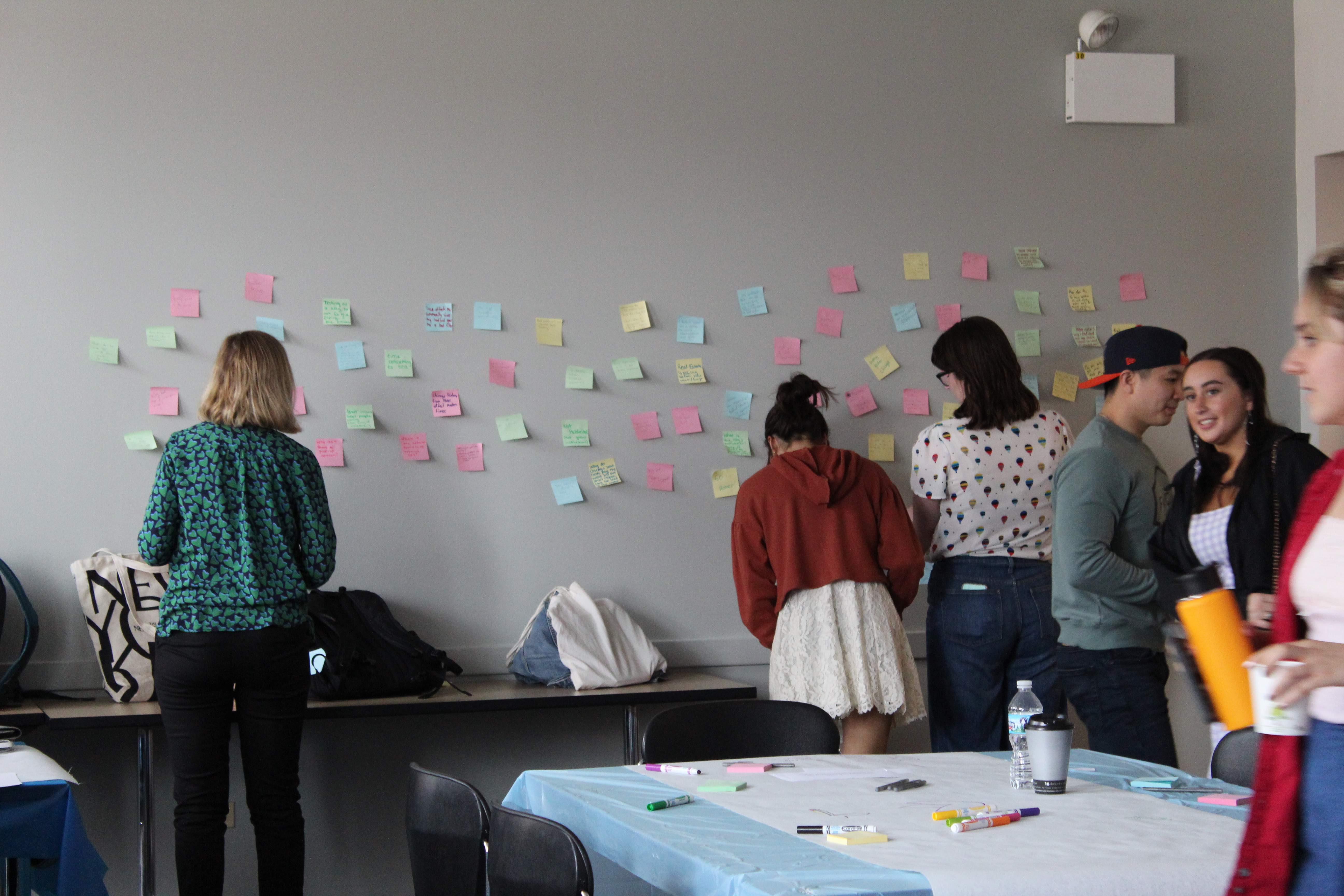
Photo: Melody Mercado, 14 East.
Another theme we heard echoed between participants surrounded accessibility — or lack thereof — when it comes to water testing. For instance, the test itself is ordered online. So if someone doesn’t have internet access or decide to access the internet, they can’t order the test. Our guests mentioned that from start to finish, the process takes a lot of time (sometimes up to four months to receive your results), so for people who have a lot going on, this isn’t something they’ll likely keep up on.
“There is lead and there is nothing to do about it.”
There was an overwhelming feeling of ambivalence and hopelessness among those at our event — that the problem was almost so big that not much is going to change. One guest wrote on a post-it note during the conversation, “by characterizing water as some scary amorphous issue you make it that much harder to offer tangible solutions.”
“I didn’t know.”
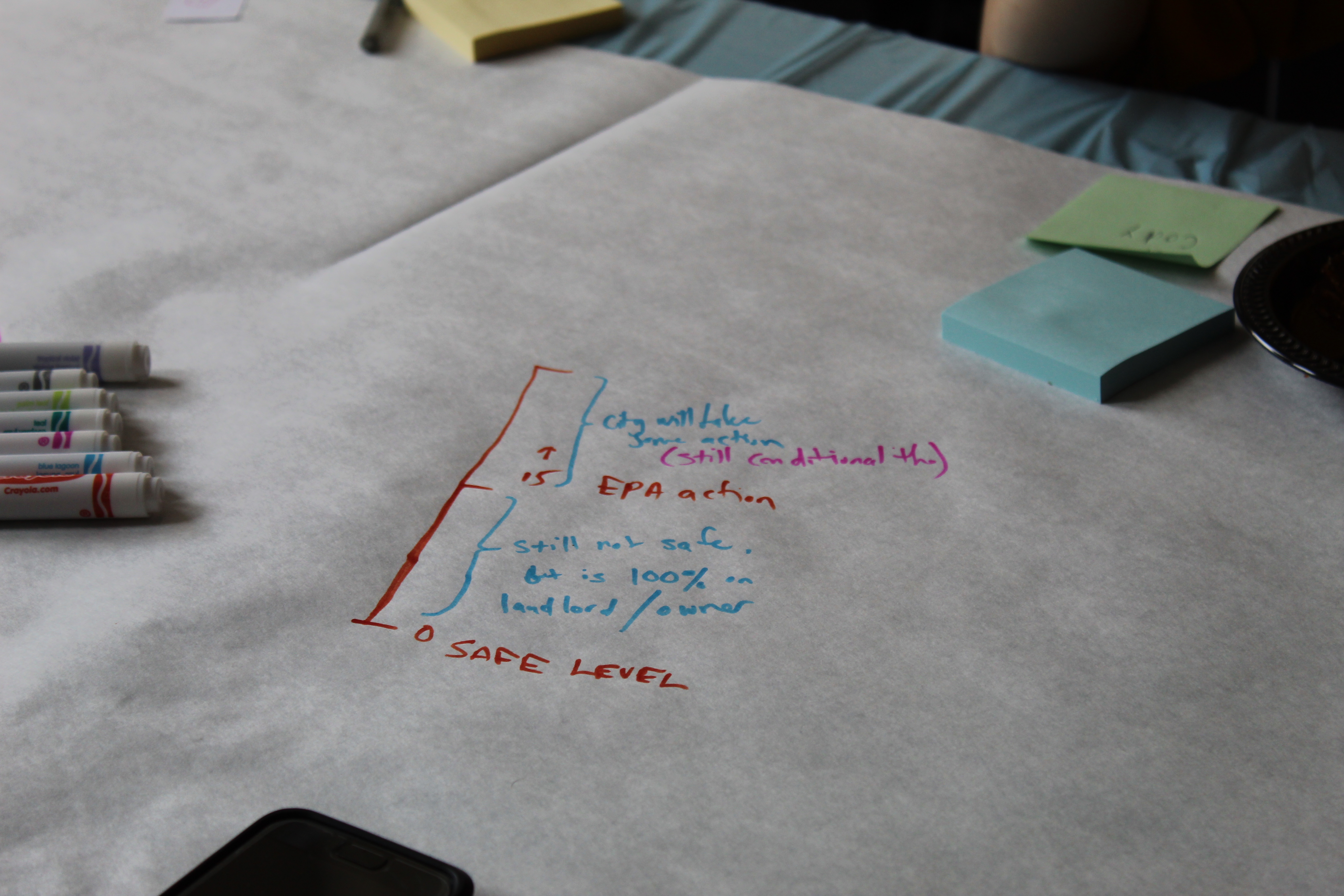
Photo: Melody Mercado, 14 East.
Many of our guests said that they didn’t know about the history of lead in Chicago — and most didn’t realize the city offered a free test until they heard about our project in the first place. Some knew about lead-related problems in Chicago prior to our project. Others didn’t. This shows that there is a disconnect — both between city officials and residents, as well as journalists and residents. It made us think, are we communicating information in a way that reaches those who need it and informs them? Are we giving them solutions (like the water test) when they are available?
The DePaul community has a lot of questions.
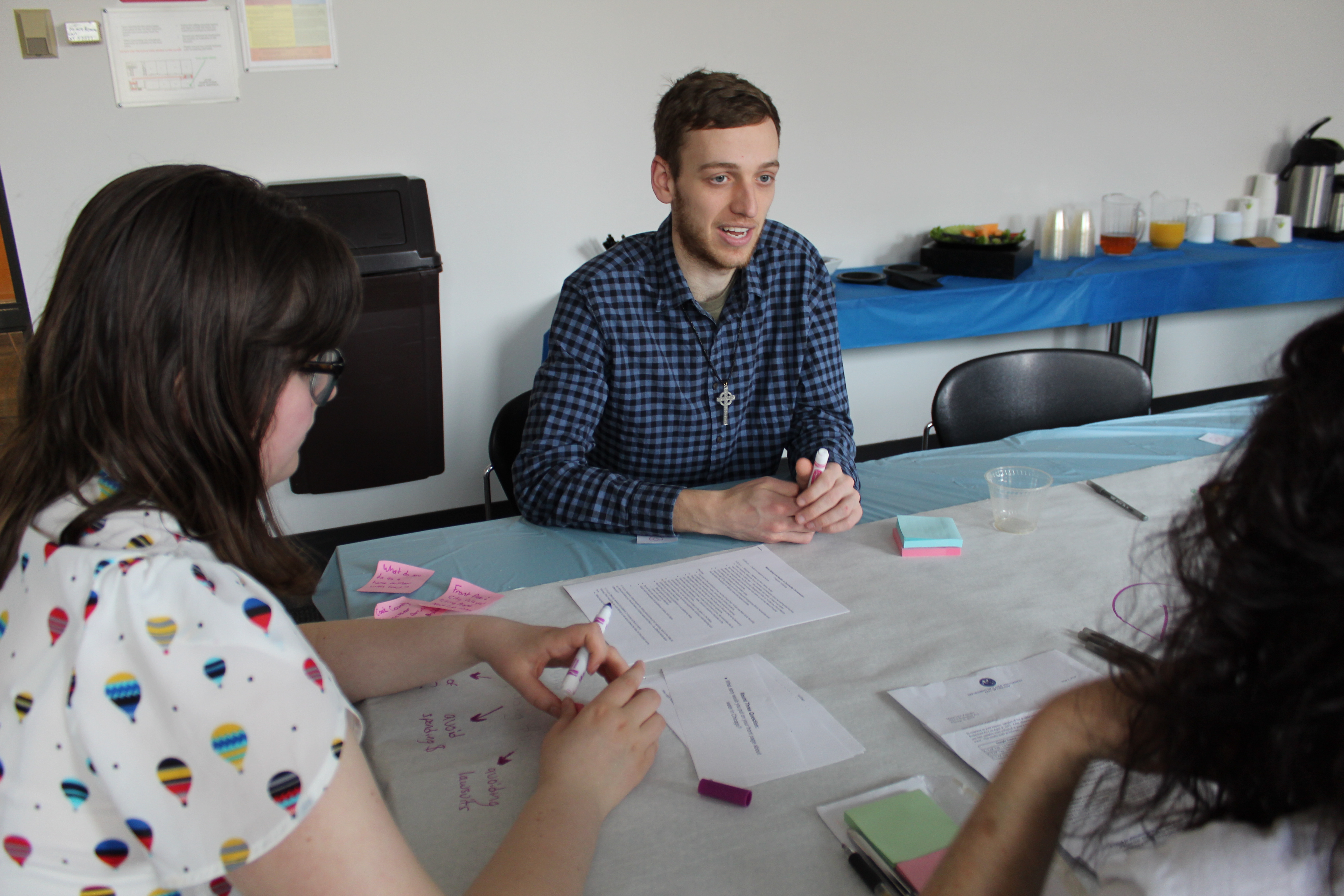
Photo: Melody Mercado, 14 East.
Forty-three questions came from the community conversation alone. Questions range from concerns about the city’s priorities and the cost of fixing the “lead problem” to why someone’s landlord didn’t tell them that there was a possibility of lead in their water. We learned that there are some simple questions that we can answer quickly through our reporting, like what filters remove lead or what rights renters have. Others will take longer to answer, like what is the motivation for the city distributing the test and what about the water in DePaul’s fountains?
Overall, we learned that we have a lot more reporting to do, stories to follow up on and people to speak with. Like other stories we work on, our water testing project is not stagnant — it’s fluid and constantly changing as new information arises. There is still much more that the DePaul community is curious about, that they want and — in many cases — need to know. So while we are finishing up the formal part of our project, our reporting will continue based on what we learned from this event and conversations to come.
This investigation was made possible by funding through the Illinois Humanities, News Integrity Initiative and the MacArthur Foundation.
Header photo by Melody Mercado, 14 East.


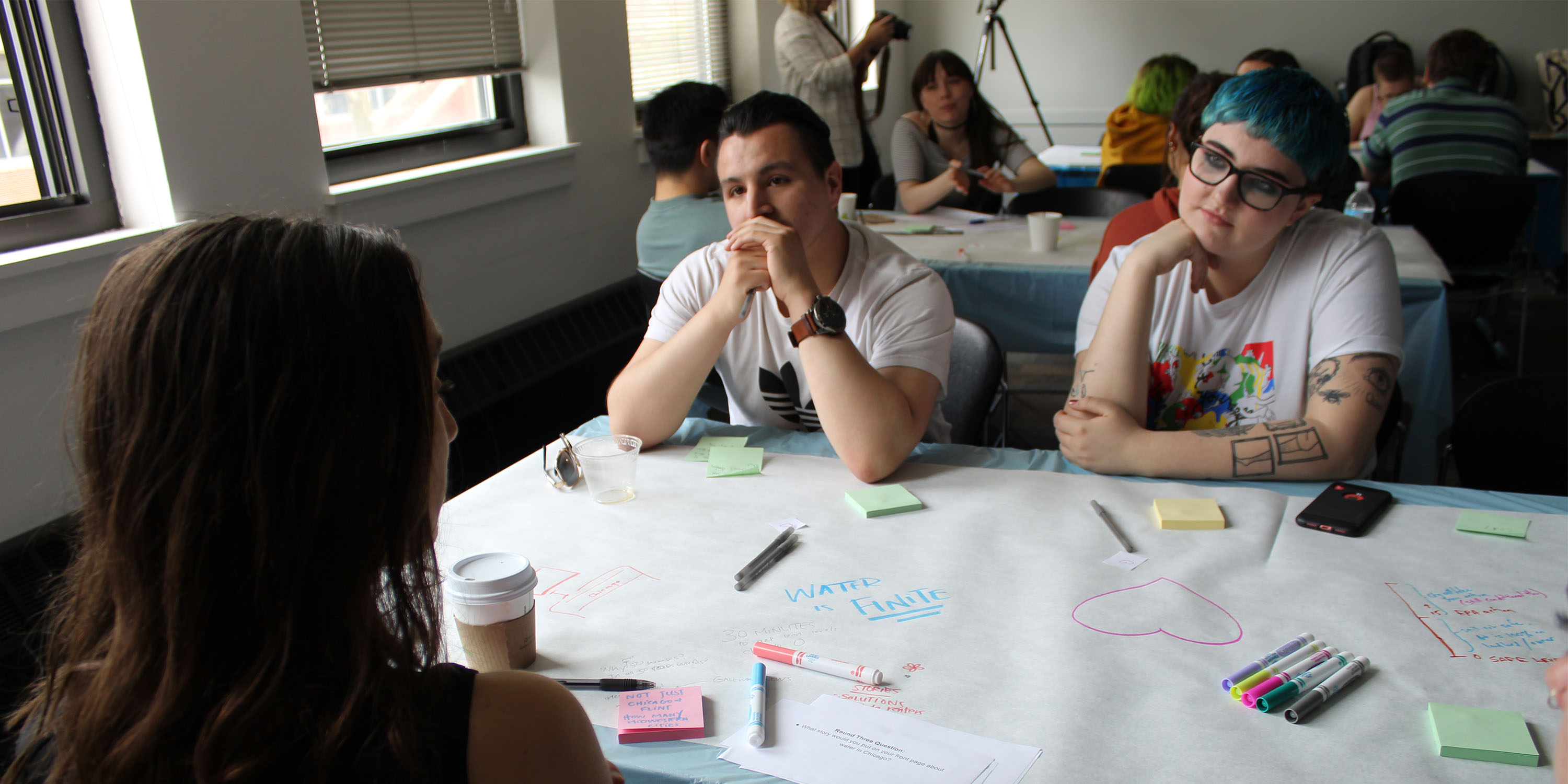
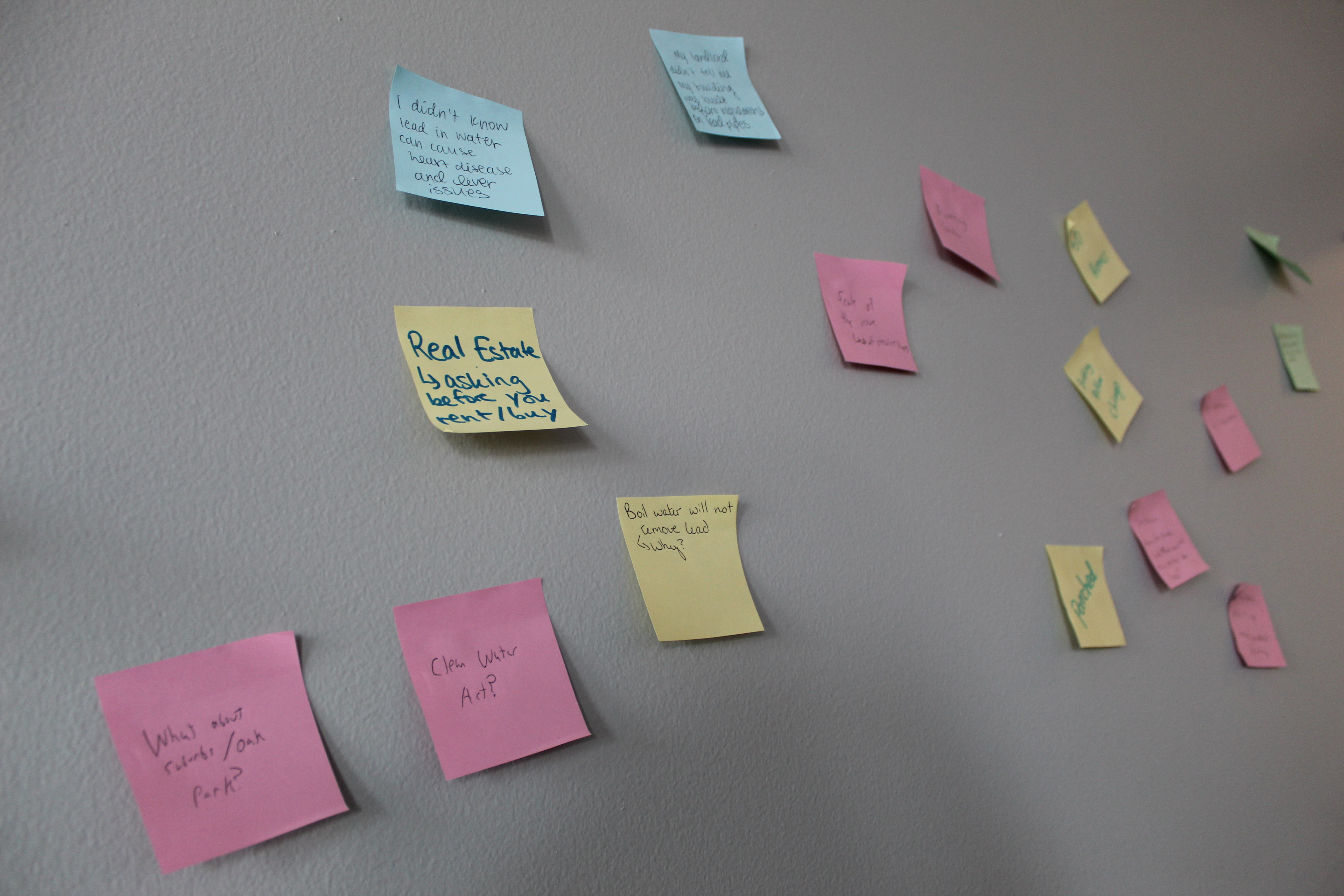

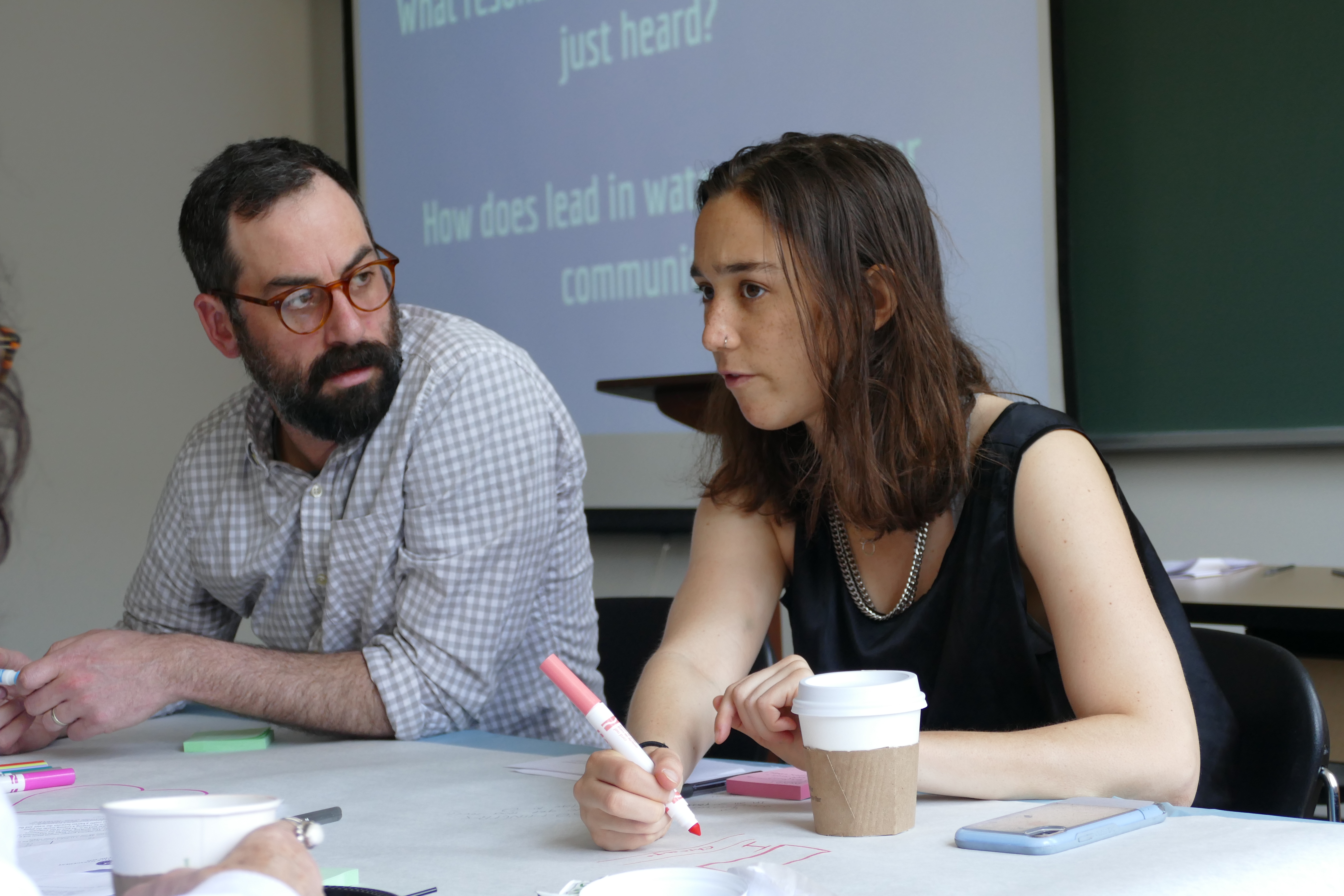
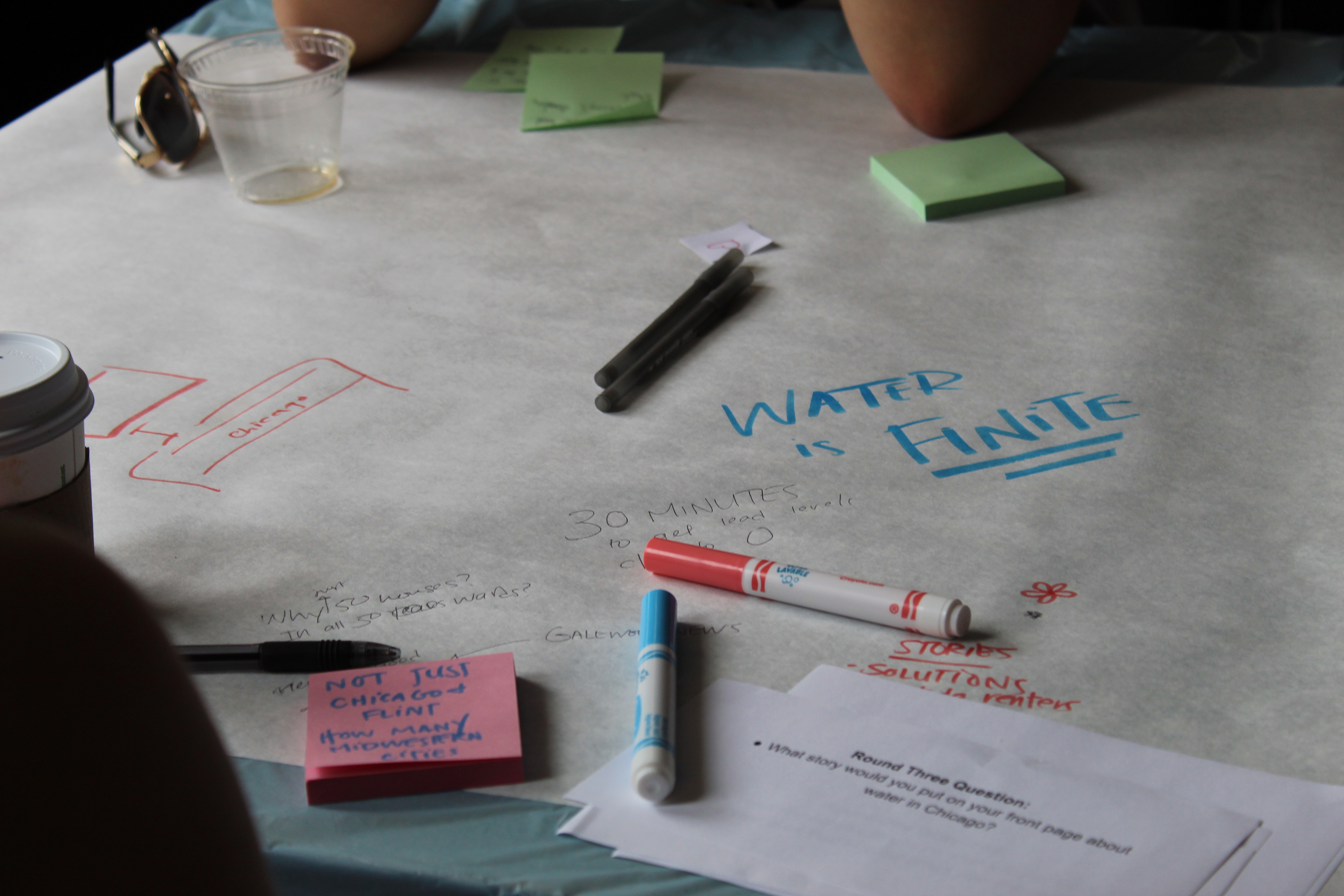
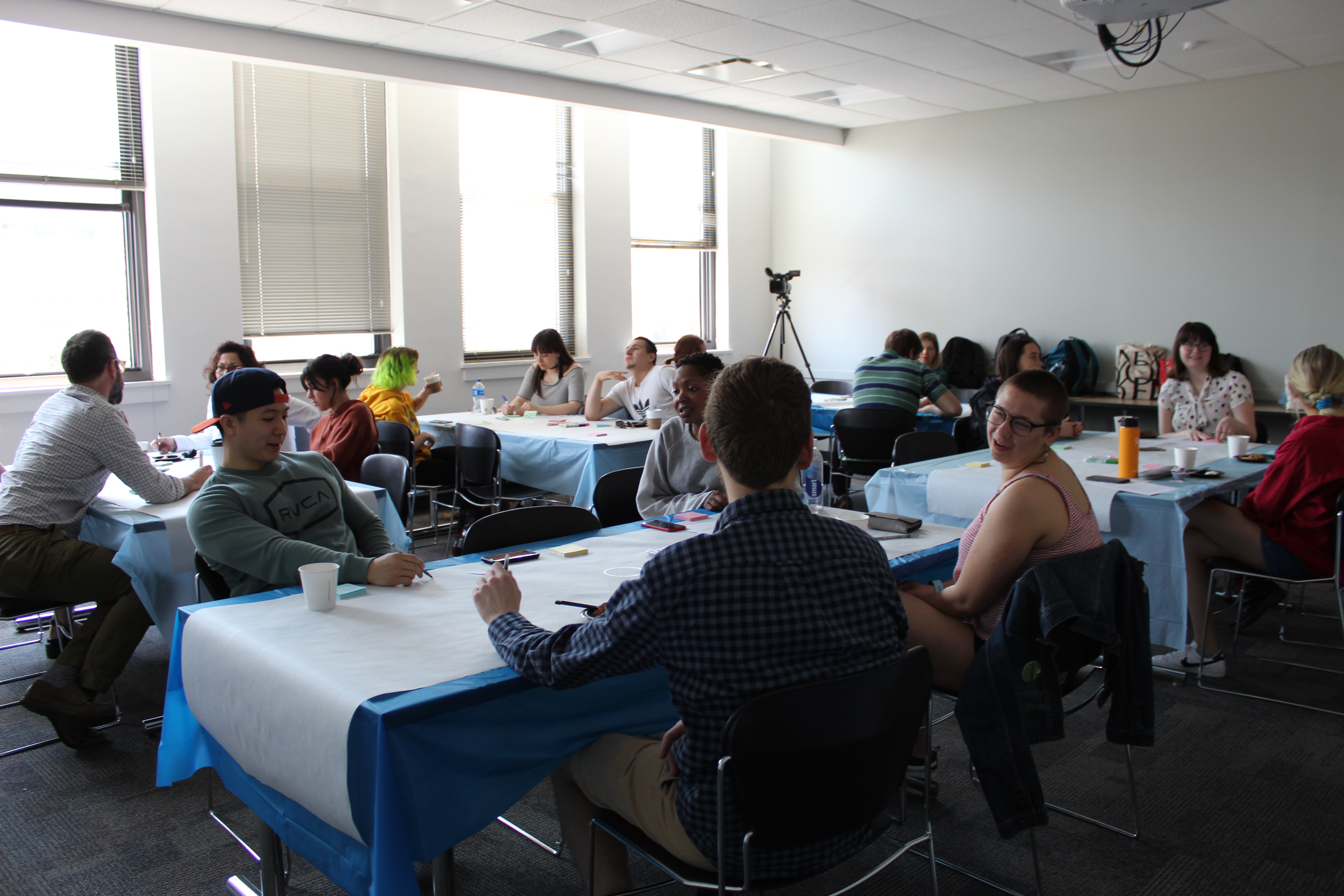
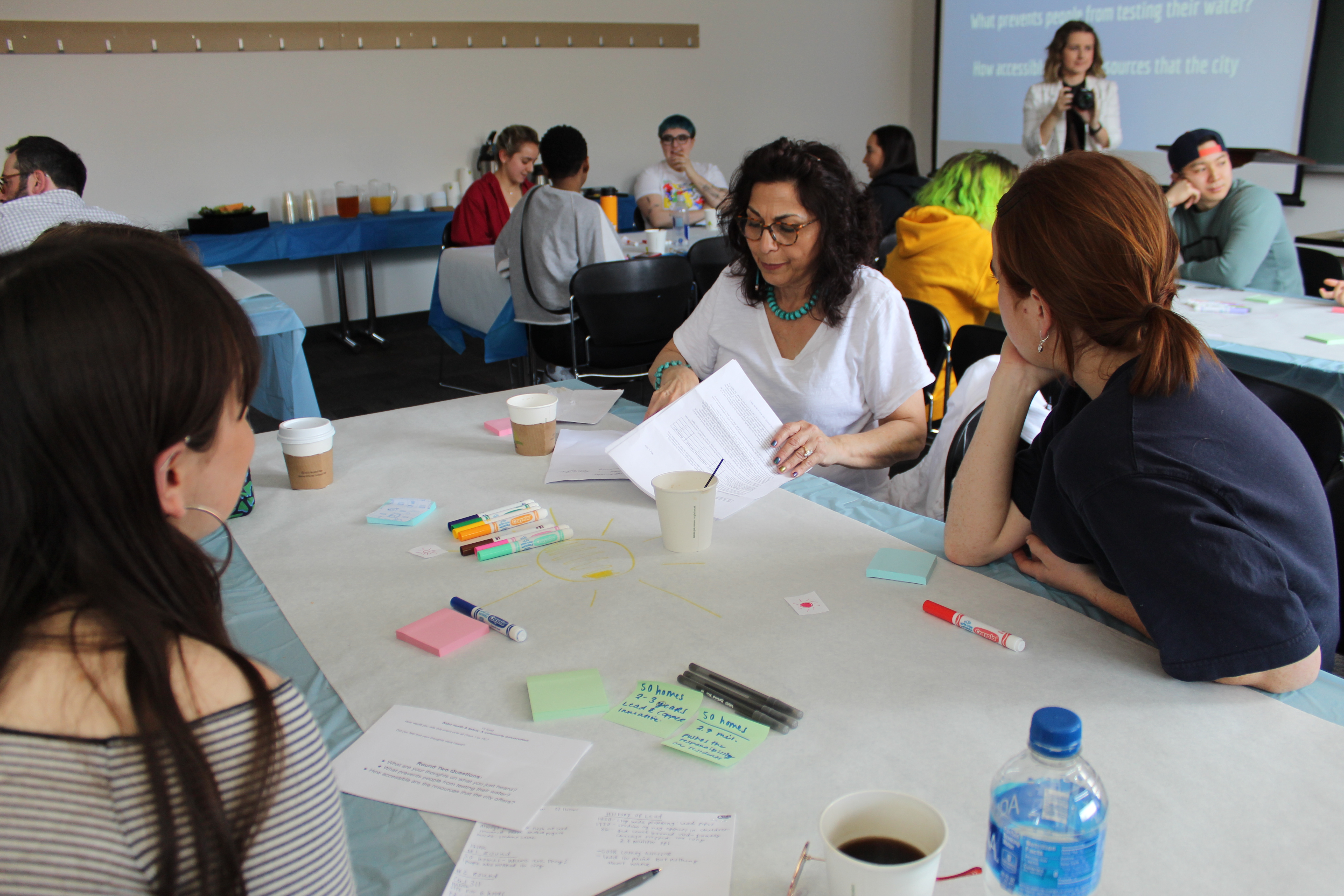

Invest in Student-Led Community Journalism on Giving News Day – Fourteen East
4 December
[…] from workshops and professional development open to the public to live storytelling events and community listening sessions. And in 2018, we began collaborating with DePaul’s chapter of the Society of Professional […]